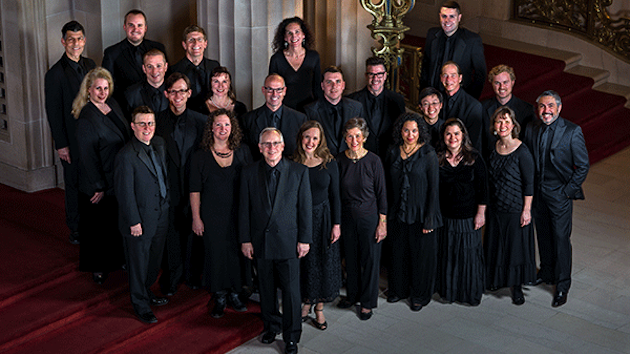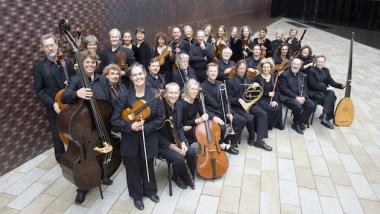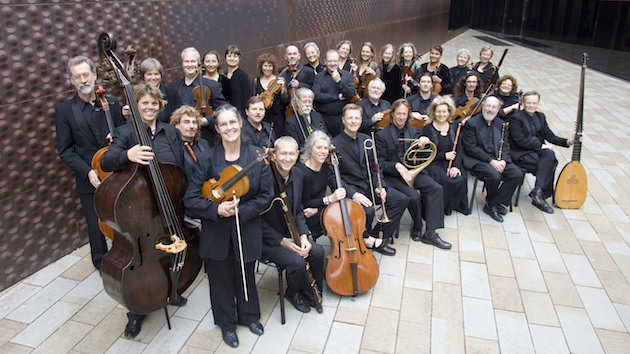
At the top of Act Two in Handel’s war-mongering oratorio Joshua, the eponymous hero is gearing up to demolish the walls of Jericho. The orchestra celebrates the deed first in a stately march, featuring an antiphonal horn-and-trumpet exchange, and then in an elegant choral praise song topped off by rumbling timpani to bring down the “tott’ring tow’rs” as the “pond’rous ruin falls.” It’s all pretty showy stuff, but Handel is just getting started.
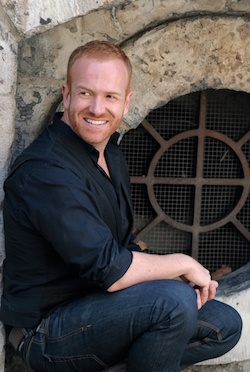
In a vigorous and absorbing performance of this 1747 work by Philharmonia Baroque, the musical special effects kept coming Friday, December 2, at the First United Methodist Church in Palo Alto. As the military man Caleb (baritone William Berger) relished the fallen city of Jericho on fire, the violins sent hot flames licking upward. When fortunes were promptly reversed, in a “Chorus of the defeated Israelites,” the flutes keened and mourned.
“Whence this dejection?” demanded Joshua (tenor Thomas Cooley, an indomitable musical force), which brought the Philharmonia Chorale all but leaping to its feet for yet another urgent answer to his call. “We with redoubled rage return,” they sang, in burnished, punching harmonies. “All our hearts with fury burn.”
Then, in Hollywood-worthy fashion, came a jump cut to the story’s lovers. In parallel airs, Othniel (countertenor Daniel Taylor) and Caleb’s daughter Achsah (the sublime soprano Yulia Van Doren) delicately expressed their mutual passion. Not so fast, interjected Caleb. We Israelites have more battles to win; that mushy stuff has to be earned. In an act-ending feat of Technicolor scene painting, Handel brings the sun itself to a halt with high, suspended notes for both trumpet and strings.

Music Director Nicholas McGegan carried it all off splendidly, with rhythmic command and plenty of high-contrast effects. The orchestra, chorus, and vocalists all seemed keenly attuned to the task (never mind a flurry of fluffed notes and faulty intonation by the brasses).
Most of the narrative drive, it must be said, is confined to this middle act. By turns propulsive and static, visceral and studied, ravishing and routine, Joshua is not A-list Handel — “more of a pageant than a plot,” in program annotator Bruce Lamott’s phrase. But even when the oratorio’s gears seem to grind and the musical invention thins, there was always something on the horizon to reengage and energize the listener Friday.
Almost everything Cooley sang, in his star-turn performance as Joshua, delivered handsomely. Deploying a voice of both muscle and nuance, he barked out an order or spun out a long coloratura decoration with an unwavering sense of musical purpose. The high notes gave off a steady gleam. The passing tones were smooth and suave. And he looked the part, striding to his music stand from the church’s choir stalls for each solo turn and lifting his gaze to some shining, certain goal.
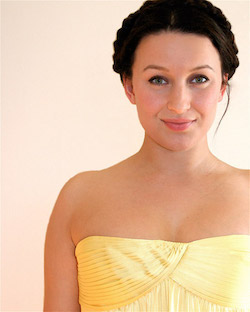
Van Doren was every bit his match, albeit in the supporting, even tangential role of Othniel’s lover Achsah. The clarity and flow of her tone, like liquid silver, brightened everything she touched. A long and lavish da capo aria, in which the soprano repeatedly invoked the supple, throaty contributions of a linnet (first violinist Elizabeth Blumenstock) and thrush (flutist Stephen Schultz), was a particular standout.
Taylor sang with tenderness and conviction, if sometimes a bit shapelessly, in Othniel’s arias and duets, handled rather tersely by the composer, with Achsah. Berger’s generally pleasing and decisive baritone turned porous late in the going, an effect that dramatized a Caleb “worn out in war,” his strength in decline.
The Palo Alto First United proved to be an apt setting for the piece. Its brawny cement walls and lofty dimensions invoked the bluntness and spectacle Joshua projects. A number of telling theatrical effects sharpened the evening. For her single, airborne aria, an Angel (the soprano Gabrielle Haigh, in fine filigreed voice) hovered above the other singers in a high pulpit. Soloists exchanged searching, serious looks now and then. The lovers, in their spare but affecting Act III duet, clasped hands.
A final round of applause is owed the chorus, which sang with distinction all night. Whether bellicose or deflated, they made the moment persuasive. “See the conqu’ring hero comes,” repurposed from the composer’s Judas Maccabeus, showcased the women in a spry setting. Nothing was lovelier than the prayer that came just before it. As the chorus spun out the long, languorous lines, war and ruined cities, for the time being, gave way to the reverently murmured gratitude for a hero.
